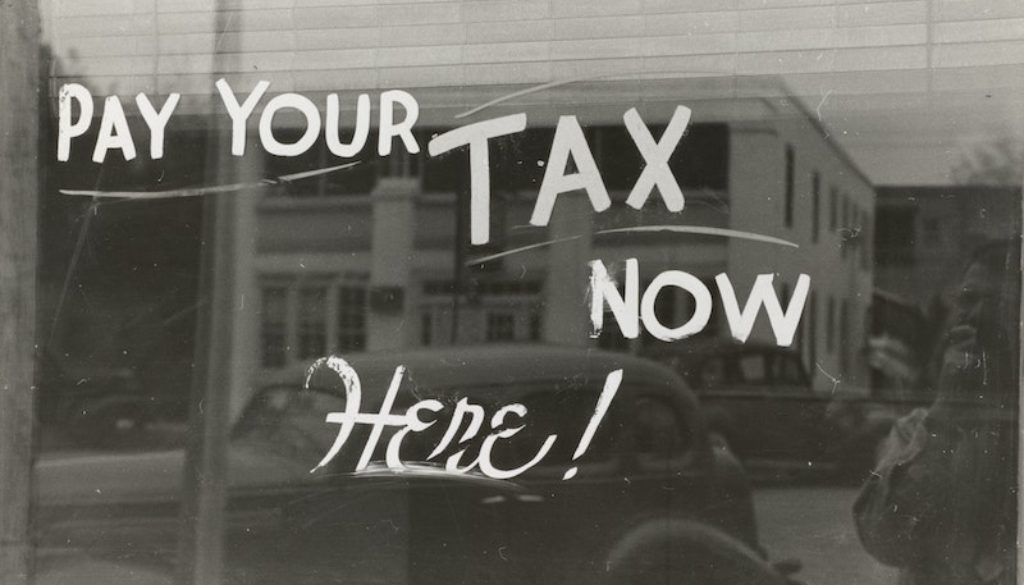The Congressional Internet Caucus Advisory Committee’s event, “Internet Tax Simplification: Is It Really That Simple?,” began with Senator Leahy addressing a packed room of Congressional staff, press. Senator Leahy commented that, “E-Commerce is blossoming and is still in its infancy.” Senator Leahy noted that due to its nascence Congress should be cautious about what gets taxed via the Internet and to avoid harming the “little guys.”
The moderator, Bartlett Cleland from Institute for Policy Innovation, framed the issues with a brief overview of the Internet Tax Moratorium, the Business Activity Tax (BAT) and the Streamlined Sales Tax Project (SSTP). Mr. Cleland observed that the true “hot topic” in the debate– particularly in Congress — is state tax simplification. The debate surrounds the Quill decision made by the Supreme Court in 1992 that prohibits a state from levying sales tax on where there is no company “presence.”
Mr. Cleland introduced the first panelist, Governor Gilmore (Former Governor of Virginia), who explained that he is on the side of the taxpayers and the Internet industry. Governor Gilmore questions the merits of the state tax simplification plan. Governor Gilmore explained that although many will argue for a “level playing field,” inheritantly not all commerce is identical, ex: brick and mortar vs. Internet.
Senator Rauschenberger (Illinois State Senator) countered Governor Gilmore’s statements by stating that state tax simplification is a modernization of the current taxation plan. This modernization would not just affect online purchases but all commerce. States would then take the sales tax burden off the retailer, especially if mistakes happen. Senator Rauschenberger said the states are looking to partner with the Federal government, not just to be constituents.
Jean Cantrell (Circuit City) joined the discussion from the perspective of a company that does online and offline business in 47 states and collects sales tax for every transaction. In 2002 Circuit City paid over $7 million to states for sales taxes. Ms. Cantrell said she feels these taxes are rightfully owed to the states. She also expressed hope that the SSTP will “level the playing field.” Ms. Cantrell stated that while Circuit City may have a competitive price on TVs it is impossible to compete against a company that does not collect sales tax.
Paul Misener (Amazon.com) urged that no one rush to judgment. “Congress can’t punt on this – the details matter,” said Mr. Misener. Amazon.com estimated that last year $2.4 billion went uncollected in sales tax — a figure far lower than many advocates of state taxation would cite. Mr. Misener reminder the attendees that $2.4 billion is a small number in comparison to many state budget shortfalls, and would not solve those budget woes if collected.
The above views are those of the panelists — not the Internet Caucus or the Advisory Committee. The Internet Caucus Advisory Committee holds these balanced panels as educational opportunities to better educate Congressional Members and staff about the current Internet debates in the 108th Congress.
For more detail regarding the event please view the complete video.
Media Coverage
NPR MARKETPLACE
Kai Ryssdal from NPR’s Marketplace crafted a segment of the morning show on Thursday from the panel event and associated one-pagers.
NATIONAL JOURNAL’S TECH DAILY (Subscribers Only)
“Panelists Debate Details Of Proposal To Streamline Sales Taxes” by Teri Rucker
WARREN’S WASHINGTON INTERNET DAILY (Subscribers Only)
Vol. 4, No. 109
“The Big Kahuna” by Dugie Standeford
INFOWORLD “Congress’ decision: To tax Internet sales or not” by Grant Gross
Photo by The New York Public Library on Unsplash

